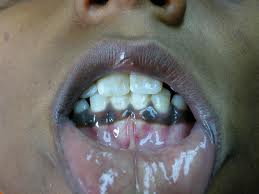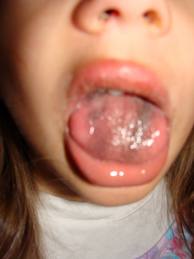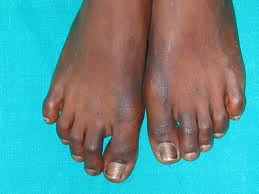 Addison’s disease (also called as Hypoadrenocortisim) is caused by a lower than normal production of steroid (corticosteroids) hormones (Glucocorticoid and Mineralocorticoid) by the adrenal glands in the body. This disease was first identified by Dr Tomas Addison in 1885.
Addison’s disease (also called as Hypoadrenocortisim) is caused by a lower than normal production of steroid (corticosteroids) hormones (Glucocorticoid and Mineralocorticoid) by the adrenal glands in the body. This disease was first identified by Dr Tomas Addison in 1885.
Addison’s affects both men and women and has serious life-threatening complications if left untreated. Though children are affected, a majority of affected persons are in the 3rd to 5th decades of life.
Symptoms
The symptoms of Addison’s disease develop slowly over a period of time and the patient may show some or all of these symptoms:
- Fatigue which grows worse over a period of time.
- Weight loss in spite of eating well
- Muscle weakness which doesn’t improve
- Patchy discoloration of the skin most visible on scars; skin folds; pressure points such as the elbows, knees, knuckles, and toes; lips; and mucous membranes.
- Low blood pressure
- Cravings for salt
- Nausea, vomiting and diarrhea are seen in 50% of patients.
- Irritability
- Depression
- Low blood sugars
- Moderate Hair loss
- Irregularity or sudden stoppage of menstrual cycle.
Occasionally, untreated Addison’s can present itself with sudden onset of symptoms (Addisonian crisis):
- Pain in lower back, abdomen and legs
- Severe vomiting and diarrhea leading to dehydration
- Very low blood pressures
- Loss of consciousness
Physical stress, injury, any infection or illness can precipitate an addisonian crisis which needs emergency management
Types and Causes
Near total or total destruction of both adrenal glands results in loss of both cortisol and aldosterone secretion causing classical Addison’s disease.
Yet, most commonly, one of the two types predominate.
Primary adrenal insufficiency is one type of Addison’s disease, resulting from the body’s immune system attacking its own cells since it fails to identify the adrenals as part of the body’s own cells (auto-immune).
Secondary adrenal insufficiency is the second type of Addison’s disease.
The functions of the adrenals are very much under the control of a higher hormone controlling gland called ‘the pituitary’. This gland is situated deep within the brain and secretions from it regulate the activity of the adrenals. Diseases affecting the pituitary cause reduced activation of the adrenals, producing insufficiency.
Sudden stoppage of corticosteroids used in the treatment of medical conditions like asthma or arthritis can also precipitate secondary adrenal insufficiency.
Homeopathic Treatment
Chronic and recurring Addison’s disease can be treated with success using homeopathy. Long term management of Addison’s disease can best be achieved with strategic combination of homeopathic therapy with the conventional medicine.





